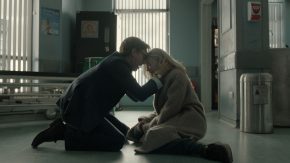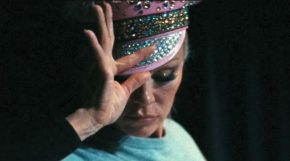At the turn of the century, composers had to fight hard for the audience to understand, or at least accept, their works. For instance, Bluebeard’s Castle by Béla Bartók was taken off from the programme after its 1918 release, and was only played again 20 (!) years later. Listeners couldn’t cope up with modern, hard-to-absorb, complex tones. Also, reviewers were sometimes very merciless to composers, which led to more and more scandals of musical life from newspapers to concert halls.
A quite good example is how a literal fight broke out in 1913 at the concert of the Viennese Philharmonics, conducted by Arnold Schönberg. Even the concert organiser took part in the mayhem, slapping a member of the audience in the face. An enemy of Schönberg’s spreaded the news after the incident that the best melody at the concert was how the palm snapped on the face…
No surprise that Schönberg had enough of the scandals destroying good work, and he started to think about a format where music can truly be in the spotlight. That’s how the Verein für musikalische Privataufführungen (Society for Private Musical Performances) was founded in 1918. In the small, exclusive concerts, artists didn’t only perform pieces, but they discussed them, answered questions of an audience that was really interested in this type of music, and explained artistic intentions behind weird, troubling, inapprehensible parts. The organisation functioned for three years; the selected audience could get to know music by Gustav Mahler, Richard Strauss, Claude Debussy, Erik Satie or Anton Webern, just to name a few. In 1921, it needed to shut down due to funding shortage.
In 2010, a British conductor called Joolz Gale had the idea of reviving the Society for Private Musical Performances format. He has seen the problem of a widespread alienation of classical music even today, and just like Schönberg, he guessed that a huge part of it depends on how one “packs” it. He reached out to soloists of German orchestras, combining them to make his own chamber orchestra, which received the telling name Ensemble Mini. The group bursted into musical life with innovative, revolutionary, special-sounding and special-looking, exclusive concerts. They didn’t make a secret of how they hoped to appeal to new audiences who otherwise wouldn’t go to a traditional concert hall.
The first huge step by Ensemble Mini was to celebrate Gustav Mahler’s 100th anniversary in 2011 with their programme “mini-Mahler” in the chamber hall of the Berlin Philharmonics. Similarly successful performances included works by Richard Strauss, Claude Debussy, Igor Stravinsky, Johannes Brahms, Modest Mussorgsky, Anton Bruckner, Sergei Prokofiev and others. The pieces which were originally written for a full orchestra are usually rearranged by Joolz Gale himself for Ensemble Mini, so that they can be part of the repertoire. In 2021, the group celebrated its 10th anniversary with revisiting the Mahler programme, and they even won the OPUS Klassik prize in the category of Best Album in Chamber Music.
One of their most successful programmes is “Bartók Beyond Borders”. On April 6 they will introduce it at the Bartók Spring International Art Weeks in Budapest. From the three pieces played here, the originally orchestral Dance Suite and a suite based on the The Miraculous Mandarin were arranged by Joolz Gale, and Romanian Folk Dances by Ensemble Mini’s current guest artist. He is Rony Barrak, Lebanese-born musician and composer, who will also play at the concert with an instrument called darbuka.
In case no teacher, text or concert has been able to bring Bartók’s music closer to you so far, you might still give this group one more try…



























Comments